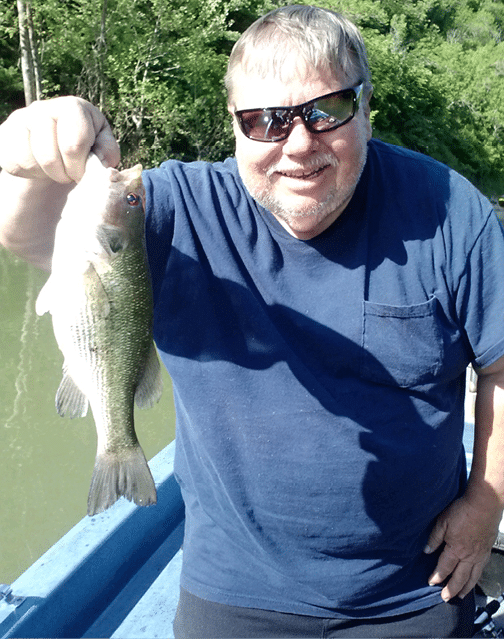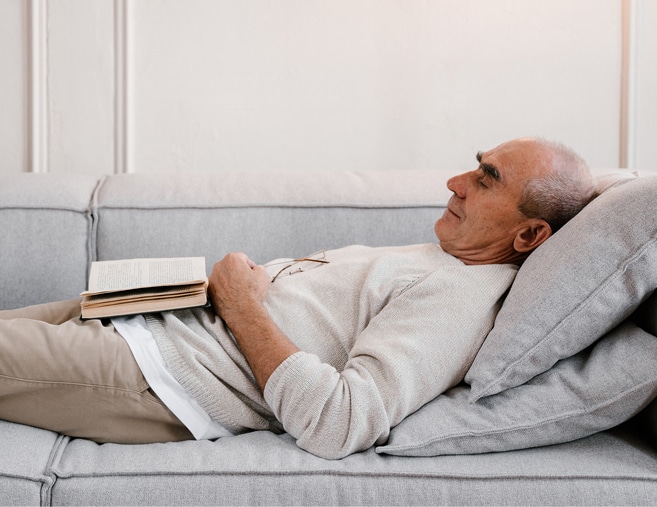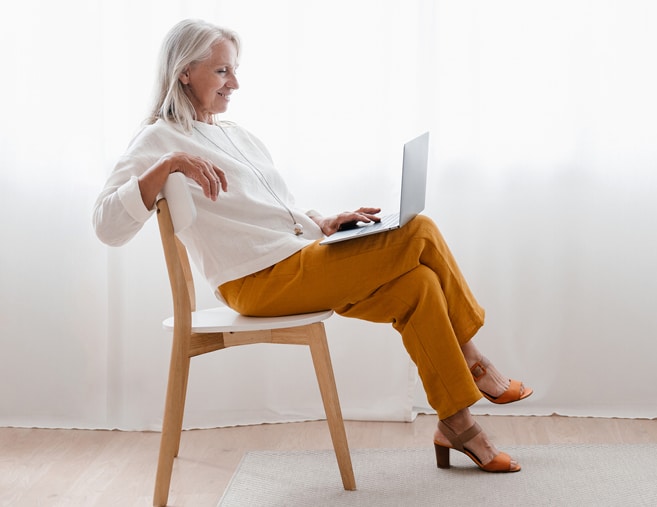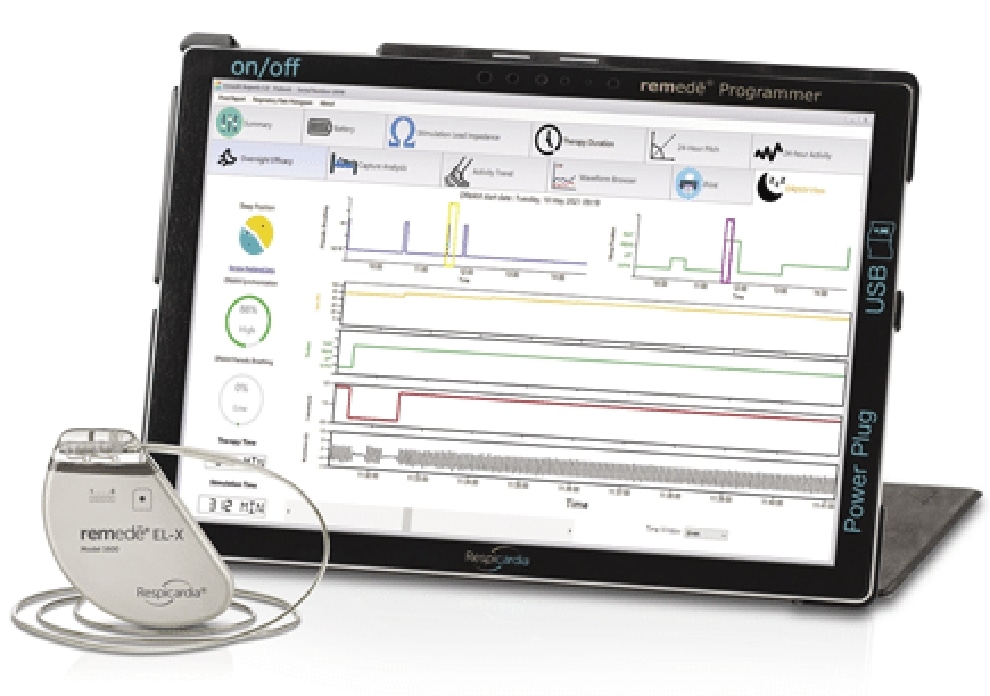Introduction
Janaki K., Respicardia: Thank you for joining us Mr. Grant. Before we talk about your struggle with Central Sleep Apnea (CSA), can you tell me a little bit about yourself and your family?
Alan Grant, remedē patient: I am originally from San Diego and moved to Kentucky for school in 1974. I liked the place so much that I decided to stay here. I got a master’s degree in biology from Eastern Kentucky University and started out doing most of my work in the environmental field, working with toxic waste that was in the environment. In my second term with the state, I worked on stream restorations. I retired with a disability about 10 years ago and most of it had to do with sleep disorders. Now that I am retired, I spend my time playing golf and going fishing. I also have four grandkids who live close by and I spend a lot of time with them.
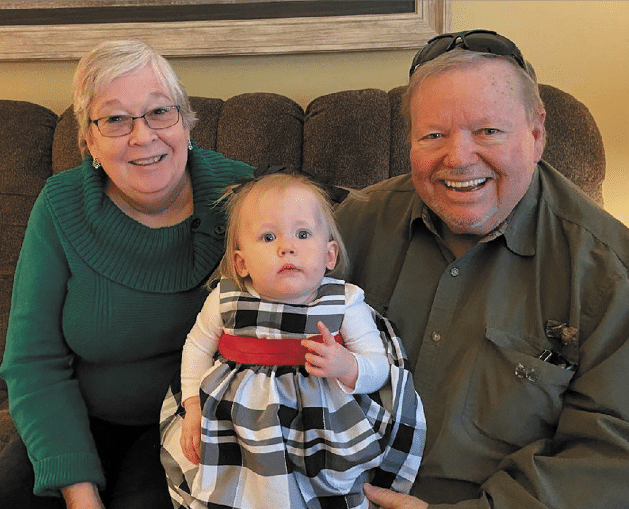
Living with central sleep apnea
Janaki: Thanks Alan. It sounds like you are very busy despite being retired. Let’s talk about how CSA may have started affecting you and the activities you enjoy. How did you feel prior to being diagnosed with CSA?
Alan: Well, I was first diagnosed with obstructive sleep apnea (OSA) in 1995. It started to get worse and I started doing some research on my own to find out what exactly was wrong with me. I would tell my wife “listen to me, I don’t have an apnea, I just stop breathing.” Then about 5 years ago, the doctors said “you need a tracheotomy” to cure the OSA. I agreed to it because if it was going to help, then why not! But that did not seem to help.
Like I said earlier, I retired with a disability. I have a severe case of restless leg syndrome and sleep apnea. They only seemed to be getting worse. In the last four or five years, I have just been a couch potato or sometimes worse than that. I was in bed most of the time. I could not move or sleep. I also started hallucinating. I was seeing people outside when no one was there. I was seeing things on the floor and would ask my wife to pick them up and throw them and she would be really confused. My daughter has three children. But over the past few years she would not let me hold them because I would fall asleep holding them. I would sleepwalk all the time.
“Alan’s health has been a constant concern for years. He felt so bad we couldn’t plan anything in advance. When he started hallucinating and sleep walking I thought there was no way he would get better and the rest of my life I would have to watch my husband fade away. I was terrified. He had several doctors but they never had an answer. It seemed hopeless.”
Wilda, Alan’s wife
Janaki: How did you then get diagnosed with CSA?
Alan: Well, I kept doing my research and I realized that I had CSA. But when I would go to my sleep doctors and tell them I thought I had CSA, they would tell me they did not think such a thing existed. But I was convinced I had CSA and kept looking for experts. I eventually found a doctor really close by in Cincinnati, Dr. Javaheri, and I called him up. He had me do a sleep study and finally confirmed that I had CSA and that the tracheotomy would not help.
Exploring treatment options for central sleep apnea
Janaki: Did you try any other treatment options prior to getting remedē?
Alan: Yes, I did try other options. When I was diagnosed with CSA, I did not know about remedē. This was before remedē was in the market. Dr. Javaheri originally put me on adaptive servo-ventilation (ASV) but that did not help me. After that, Dr. Javaheri put me on this thing he called a “portable ventilator”, it was basically breathing for me but that did not help. So, I went back to using ASV but I still wasn’t getting any sleep. Finally, I just ended up sleeping with oxygen. This was the only thing that helped me. But I was still only getting 3-5 hours of sleep a week – I’m surprised that I am still alive.
Getting the remedē System
Janaki: How did you learn about and decide to get remedē? Did you have any concerns?
Alan: Well, through those years I kept researching on the internet and finally I came across the remedē System. I called and spoke to the patient liaison and they explained how the device worked and told me that the closest doctor who could perform the implant was in St. Louis which was 6 hours away. I did not do anything at that time, but I kept in touch with them. About a year later when I contacted the patient liaison again, they had a doctor in Baptist Health Lexington who was performing the procedure. I met him and spoke to him about the procedure. He had experience implanting pacemakers, but I was his first remedē patient.
Janaki: How was the healing process following the procedure? How did you feel?
Alan: I did not have any problems with the surgery or after the surgery, they told me it would take four to six weeks to heal. They asked me to come back six weeks later to turn on the therapy.
Janaki: How did it feel the first night the device was activated?
Alan: The first night they turned on the therapy, I slept for eight hours. It was the first time in many years that I had slept for so long.
Living with treated sleep apnea
Janaki: Now that you have had remedē for a while, how do you feel? Have people around you noticed any difference?
Alan: When I speak to my friends they say, “we can tell as soon as we talk to you that you are a totally different person.” They say I am back to being the person I was 10 years ago. Before getting remedē, my wife and I never slept in the same room because I was up at odd hours, I was snoring, and there was too much noise. But now my wife notices the difference. She tells me that I am talking more, and I am not tired anymore.
Janaki: Did you have to get a lot of adjustments to customize the therapy to your breathing?
Alan: I went back a month after the therapy was turned on to adjust some of the settings. They increased the therapy so that I would be getting maximum therapy. But about 2 weeks later, I thought it was too strong and wanted it turned back down a bit. They lowered the settings and it has been working well for me. Now, I just go to sleep before it turns on and I never feel it turn on.
Janaki: Thank you for sharing your story with us Alan, and we are glad that you are sleeping better and are getting back to your old self.
“Thank God for his remede surgery. I feel like Alan is on his way back to the work I live in.”
Wilda, Alan’s Wife
